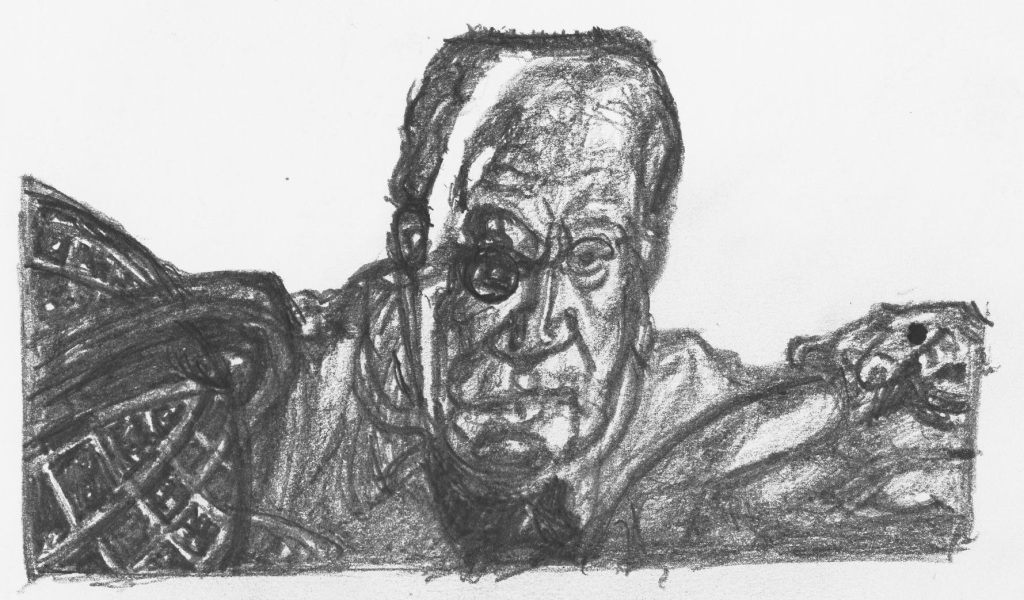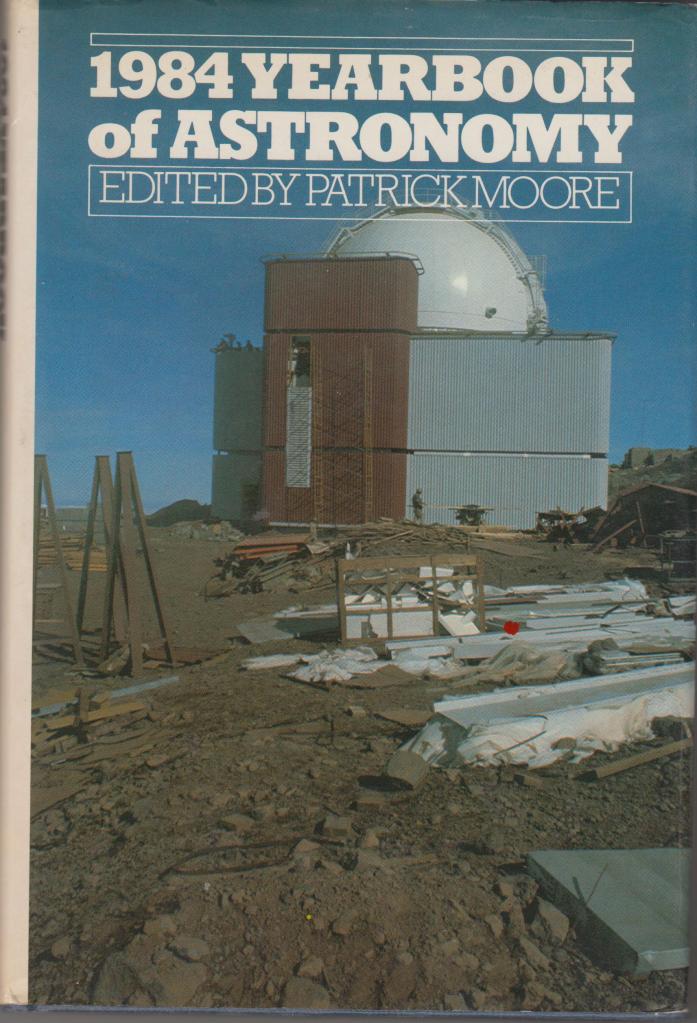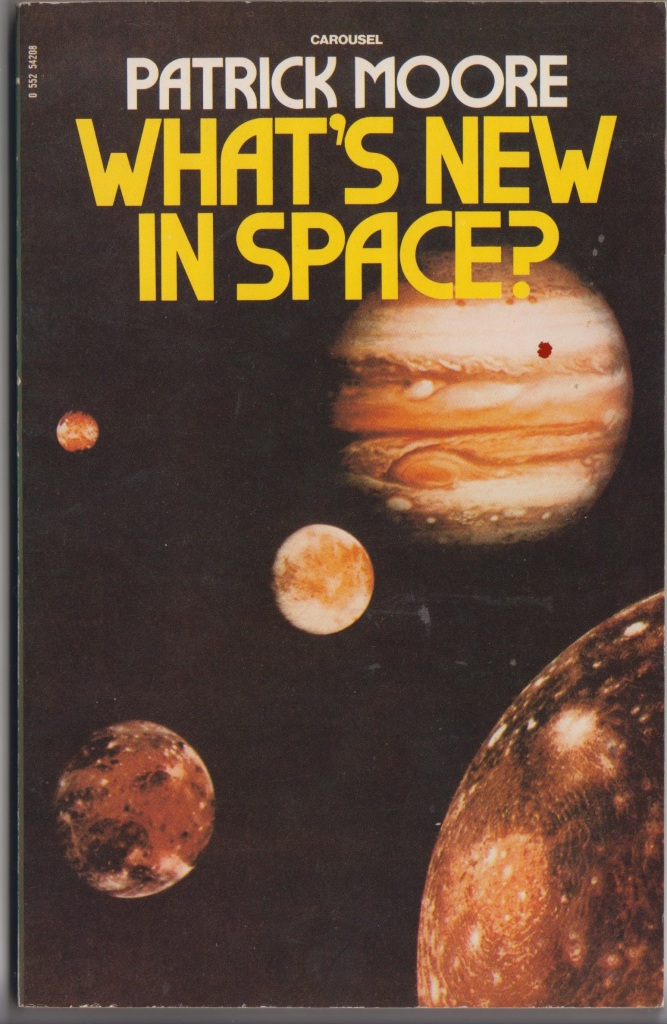Moore was for many years the face of astronomy on television in the UK, thanks to him presenting The Sky at Night from the 1950s almost to his death. He was known as much for his eccentric appearance as his subject, so there were plenty of jokes about him wearing the same rumpled suit down the decades. He was sent up on programmes from The Two Ronnies to Dead Ringers, who spoofed him as ‘Old Moore’, a fairground fortune teller. But he remained dedicated to his subject, publishing a plethora of popular books on the subject. This included a series of Sky at Night books, one of which I found in the school library when I was a lad, as well as editing the annual Yearbooks of Astronomy. He also collaborated with the amazing British space and science fiction artist David A. Hardy on books such as The Challenge of the Stars. He also wrote at least two books on Mars. I found one in the central library in Bristol in the 1980s. A decade later, during the excitement about the series of probes NASA and other countries were sending to the Red Planet, he published Patrick Moore on Mars. Its title invites all manner of jokes along the lines of ‘best place for him.’ He also wrote a series of children’s science fiction books about a boy space explorer, Scott Summers. These were hard SF based on the science of the time and what was expected to develop later. They’re now obviously very dated. In one of these, Wanderer in Space, Summers flew to intercept an antimatter asteroid that was threatening Earth aboard an ion driven rocket, clearly anticipating developments in such propulsion that haven’t materialised. Ion drives exist, but they aren’t being used for manned space missions. Another of these was about a human colony on Mars, living in a glass dome. This ends with the colonists looking forward to one day emerging and living free on its surface. This one has been superseded by Kim Stanley Robinson’s trilogy of books about the settlement and terraforming of Mars. As well as these books, he also contributed to a string of popular science and astronomy magazines like Astronomy Now, New Voyager and Focus.
I think he was one of those scientists, with Arthur C. Clarke, who worked on radar during the War but I’m not sure. He never had a formal qualification in astronomy but was always strictly amateur. He was, however, granted an amateur doctorate by one of the universities. I’m sure, however, that at the level he was active in astronomy he would have probably easily passed a university degree in the subject. His maps of the Moon were so good that they were used by NASA in selecting landing sites for the Apollo missions. He never married because his sweetheart was killed during the War in an air raid. In his personal politics he was extremely right-wing, founding the One Country party, which was later merged with another small, extreme right-wing group. I can also remember him appearing on one of the chat shows and remarking that we’d be ‘in the cart’ without Maggie Thatcher. Like many people who have genuinely been through a war, he was deeply critical of it. In one of the chapters in The New Challenge of the Stars, about a possible hostile encounter between an asteroid ark and the inhabitants of an alien planet in whose system it has appeared, Moore makes a sharp comment about man’s folly of war entering a new battleground in space. He was also a staunch opponent of fox hunting. Back in the 90s he was a guest on the comedy programme Room 101, in which guests compete to have various useless and irritating objects or people consigned to the room made famous by Orwell’s 1984. In the vast majority cases, this is just light-hearted fun. But Moore was absolutely serious about sending fox hunting there and talked about how he’d written to various authorities to get it banned. Away from astronomy he also taught himself to play the xylophone and composed numerous pieces for the instrument. One of these was published in a classical music magazine. This did not translate into a career in music, however. He got very annoyed when his planned concert at the Hippodrome was cancelled due to lack of interest.
As well as serious, professional and amateur astronomers Moore talked to during his long career, he also met and talked to various eccentrics, including UFO contactees. One of those he interviewed on the Sky at Night was a man who believed he was in contact with peaceful aliens, and could speak four of their languages, including Venusian and Plutonian. This gentleman demonstrated it by saying the greeting, ‘Hello, space brothers’, in one of them. And although Moore persistently denied it, it seems he was one of the hands behind a hoax book by ‘Cedric Allingham’ about how he encountered an alien spacecraft and its inhabitants during a walking tour of the Scottish Highlands. This was during the first wave of UFO encounters in the late 40s and 50s. When people wrote to the publisher hoping to contact Allingham, he could not be traced. One excuse was that he was off walking in Switzerland. Computer analysis of the text reveals that it was probably written by Moore and revised by someone else in order to disguise his authorship. Moore remained very willing to meet ordinary members of the public and talk to them about his subject even in his retirement. He publicly gave out the address of his home in Herstmonceux, Sussex and said if people had questions or wanted to talk to him, they could drop in, shrugging off the obvious dangers of theft, burglary and so on.
Moore belonged to an age when popular science broadcasters could be real characters, often with eccentric mannerism. There was Magnus Pike, who was famous for waving his arms around while speaking, and the bearded dynamo of Botanic Man himself, David Bellamy, sent up in impressions by Lenny Henry. Since then, popular science programmes have been presented by people who are younger and/or a bit more hip. One BBC programme on astronomy a few years ago was presented by Queen guitarist Brian May, who had studied astrophysics at university before getting caught up in his career as an awesome global rock star. May had just handed in his astrophysics thesis after decades of touring the world with Mercury, Deacon et al. His co-presenter was the comedian Dara O’Brien, who had tried to study maths at university but had dropped out because of its difficulty. The Sky at Night is now presented by about three different hosts, including Black woman Maggie Aderin-Pocock. And I think the face of astronomy and cosmology now is probably Brian Cox after all his series on the subject. But for all this, I prefer the science presenters of a previous generation with all their quirks and foibles. These people were enthusiastic about their subject and were able to communicate their enthusiasm without trying to be too slick to connect with a mass audience. And they succeeded.

The 1984 Yearbook of Astronomy and What’s New in Space, just two of the books edited and written by Moore.

